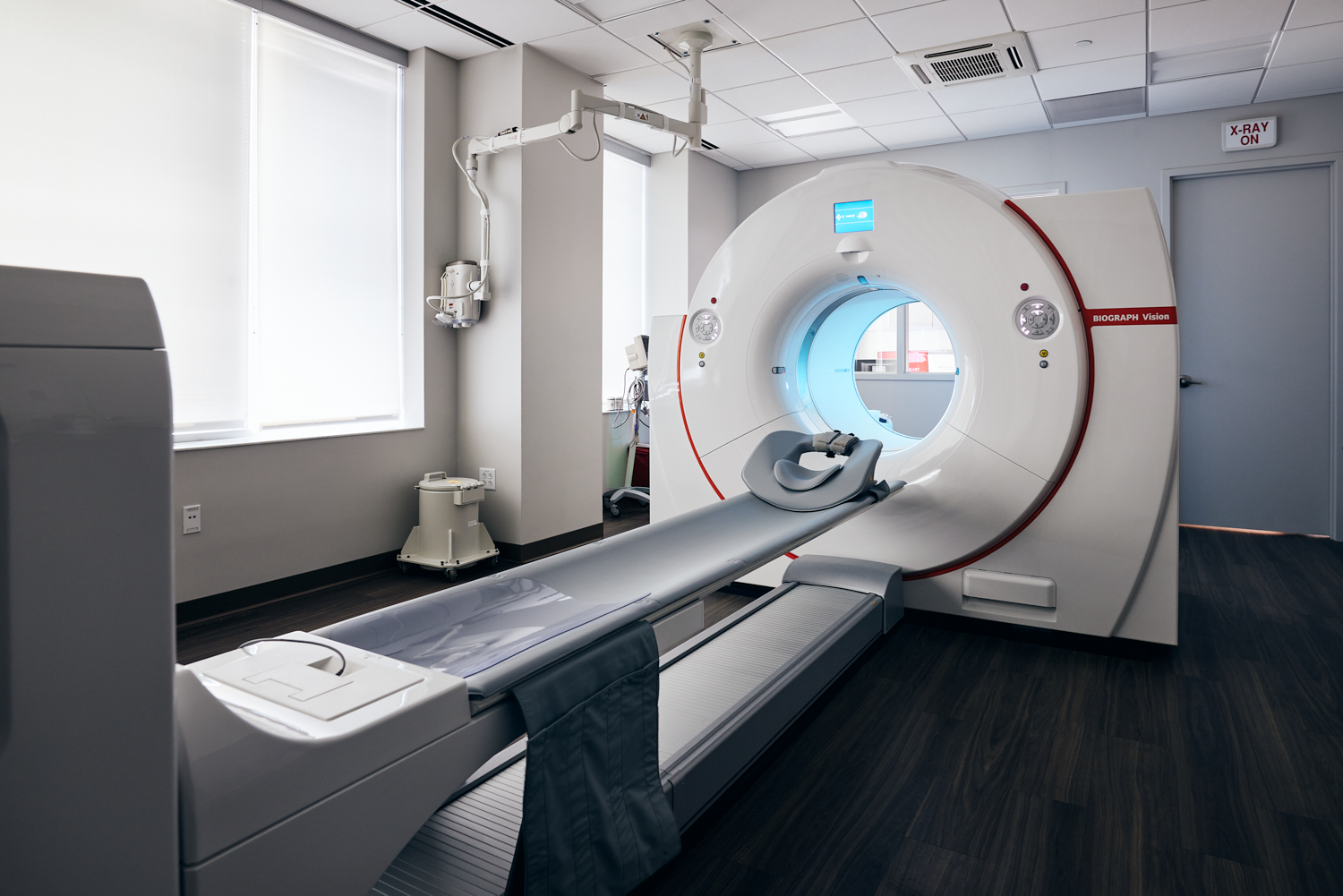Basic Facts:
- A PET-CT test is a type of stress testing that involves a medication rather than exercise on a treadmill, with images of the heart obtained before and after using a nuclear medicine tracer and a special camera, combined with a CT scan, to provide details about blood flow to the heart and the function of the heart.
- This test can be used in a variety of situations such as:
- Looking for blockages of the heart arteries in patients who have symptoms such as chest pain, pressure, or shortness of breath.
- Understanding the prognosis of someone who is already known to have heart disease.
- Understanding a patient's cardiac risk if they are to undergo other surgical procedures.

